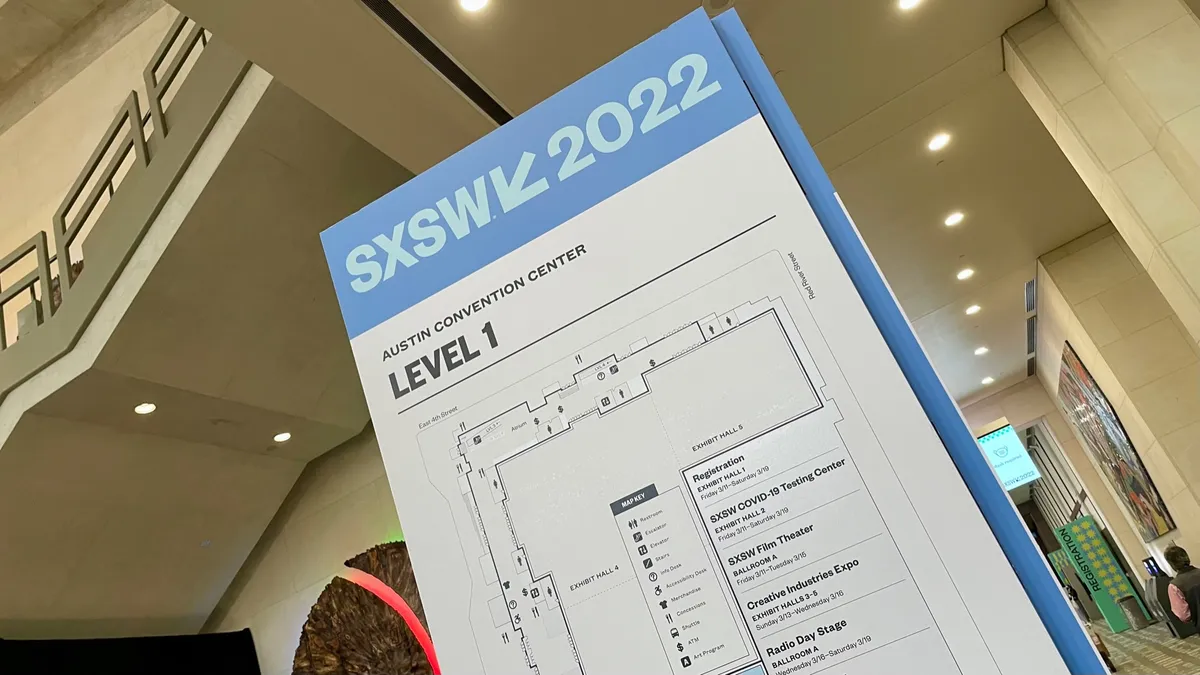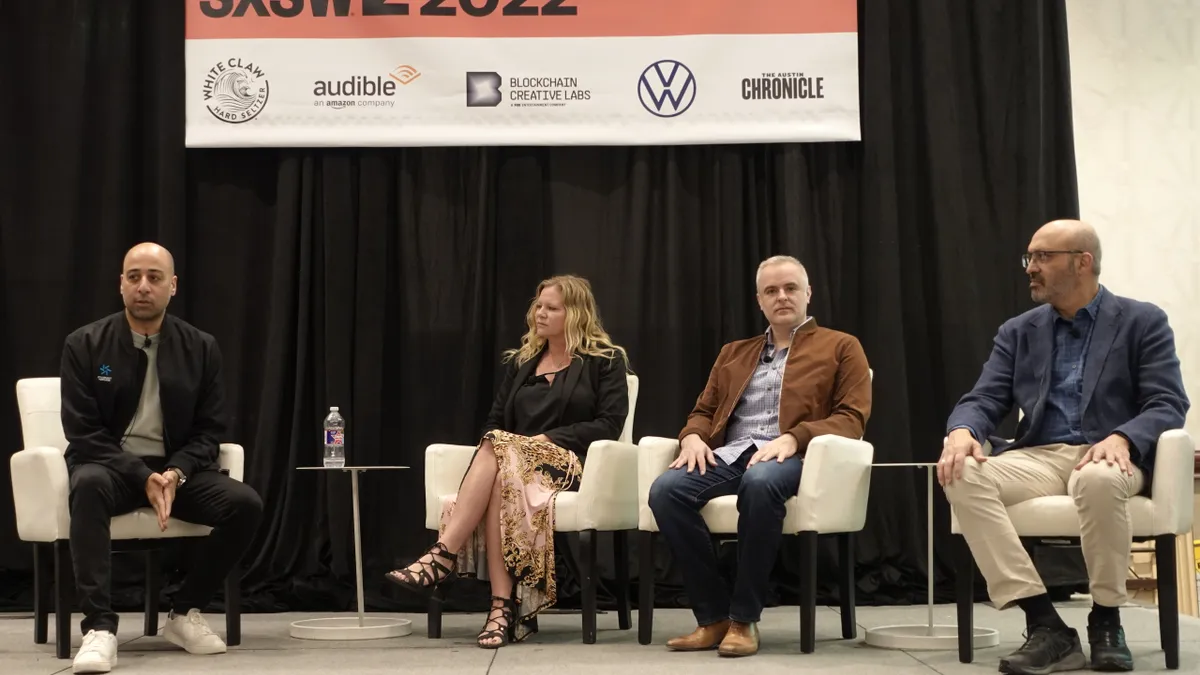AUSTIN, TEXAS – In many ways, SXSW celebrates the future: It draws startup entrepreneurs; brings together young artists, musicians and filmmakers; and spotlights technologies that sometimes become part of our daily lives. But futurist Jason Schenker, speaking at the conference this week, warned that short-term trends right now could have long-term consequences, perhaps putting a damper on the conference's optimism.
Geopolitical turmoil and other conditions have sent the cost of industrial metals to near-record highs and created a surge in crude oil prices, he noted, threatening the supply of raw materials used in batteries and semiconductors. Some of these issues will affect the transition to electric vehicles (EVs) and autonomous vehicles (AVs) and constrain cities' ability to reach their climate goals, he said.
"Cold War 2 slows down our ability to get EVs going," Schenker said — using that descriptor to characterize the growing tensions between Western democracies and Russia and China. To counteract these trends, he said recycling metals and batteries will be crucial, and he believes that quantum computing will be necessary to optimize supply chains and data processing for advanced autonomous vehicles.
'Autonomous vehicles are not going to be here anytime soon'
Rosy predictions about the arrival of self-driving cars haven't materialized, and beyond limited testing programs, fully autonomous vehicles are not available to the public to either ride or drive. Michelle Mueller, senior project manager in connected and automated vehicles and electrification for the Michigan Department of Transportation, pointed to unsettled legal and insurance issues around liability for collisions that make AVs a higher-risk investment for automakers.
Before autonomous, connected vehicles can hit the road en masse, Schenker said, regulations for data privacy, security and cybersecurity will have to be established. Peter Rawlinson, CEO of startup EV manufacturer Lucid Motors, flatly stated that "Autonomous vehicles are not going to be here anytime soon."
EV optimism is tempered by inflation
Much more optimism surrounds EVs, but with caveats there as well. "Battery-electric vehicles could become commonplace very quickly," said Ford Motor Co. Senior Design Strategy Director and Global Experience Design Lead - Autonomous Vehicles Frank Brown, during his presentation.
Rawlinson, whose $169,000 Lucid Air Dream Edition recently began shipping to customers, is bullish about EVs, unsurprisingly. But he warned that "profound inflationary pressures" will increase production costs that will have to be passed on to future buyers.
SXSW's transportation track highlights accessibility, sustainability hurdles
SXSW has grown dramatically since it launched in Austin with 700 attendees in 1987, yet 2022 is the first year the conference has held a transportation track.
A week of panel discussions and guest speakers, highlighted by Wednesday's town hall with Transportation Secretary Pete Buttigieg, covered topics from AVs and EVs to VTOL aircraft and flying taxis. Underlying all of the discussion of not-so-futuristic technology, as well as of the current transportation network, are the less-shiny but more troublesome issues of equity and sustainability.
Hind Ourahou, senior mobility strategist for the city of Detroit, said low-income people, seniors, youth, people with disabilities and mothers without cars are "really hurting" when it comes to transportation options.
The Southeastern Pennsylvania Transportation Authority, which largely serves Philadelphia, a city with a high rate of poverty, is struggling with "unprecedented levels" of unsheltered people taking refuge in its transit system, said CEO and General Manager Leslie Richards.
Jeff Kavanaugh, chief learner and sharer at Infosys, told attendees that "50% of the sustainability challenge can be solved by current technology." But that still leaves a lot of work to do.


















